Six Novels by David Markson
Requirements: ePUB Reader , 1.67mb
Overview: David Markson was an American author, born in Albany, New York in 1927. He is the author of several postmodern novels, including This is Not a Novel, Springer's Progress, and Wittgenstein's Mistress. His most recent work, The Last Novel, was published in 2007 and received a positive review in the New York Times, which called it "a real tour de force."
Markson's work is characterized by an unconventional approach to narration and plot. While his early works may draw on the modernist tradition of William Faulkner and Malcolm Lowry, Markson says his later novels are "literally crammed with literary and artistic anecdotes" and "nonlinear, discontinuous, collage-like, an assemblage."
Genre: Fiction > General Fiction/Classics
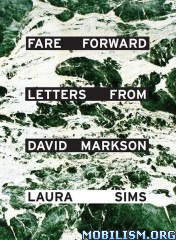
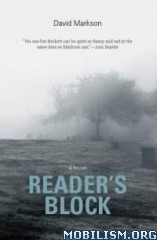
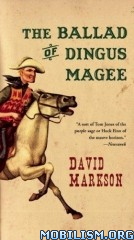
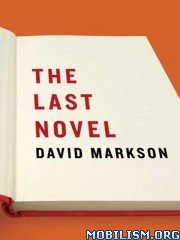
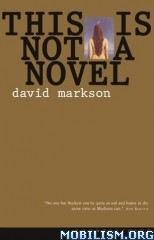
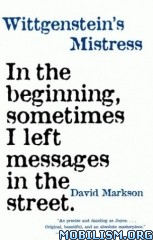
Fare Forward: Letters from David Markson by David Markson (Author), Laura Sims (Editor), Ann Beattie (Afterword)
In this first-ever book of letters by novelist David Markson—a quintessential "writer's writer" whose work David Foster Wallace once lauded as "pretty much the high point of experimental fiction in this country"—readers will experience Markson at his wittiest and warmest. Poet Laura Sims shares her correspondence with him, which began with an impassioned fan letter in 2003 and ended with his death in 2010, finally allowing a glimpse into the personal world of this solitary man who found his life's solace in literature. The letters trace the growth of a genuine and moving friendship between two writers at very different stages; in them we see Markson grapple, humorously, with the indignities of old age and poor health, and reminisce about his early days as a key literary figure in the Greenwich Village scene of the 1950s and 60s. At the same time, he sincerely celebrates Sims's marriage and the first milestones of her career as a poet. The book is full of engaging commentary on life, love, and the writing life.
Reader's Block
In this spellbinding, utterly unconventional fiction, an aging author who is identified only as Reader contemplates the writing of a novel. As he does, other matters insistently crowd his mind — literary and cultural anecdotes, endless quotations attributed and not, scholarly curiosities — the residue of a lifetime's reading which is apparently all he has to show for his decades on earth. Out of these unlikely yet incontestably fascinating materials — including innumerable details about the madness and calamity in many artists' and writers' lives, the eternal critical affronts, the startling bigotry, the countless suicides — David Markson has created a novel of extraordinary intellectual suggestiveness. But while shoring up Reader's ruins with such fragments, Markson has also managed to electrify his novel with an almost unbearable emotional impact. Where Reader ultimately leads us is shattering.
The Ballad of Dingus Maggee
Although best known today for his singular, stunning “anti-novels” dazzlingly conjured from anecdotes, quotes, and small thoughts, in his early days David Markson paid the rent by writing punchy, highly dramatic fictions. On the heels of a new double edition of his steamy noirs Epitaph for a Tramp and Epitaph for a Deadbeat comes a new edition of his 1965 classic The Ballad of Dingus Magee, whose subtitle — “Immortal True Saga of the Most Notorious and Desperate Bad Man of the Olden Days, his Blood-Shedding, his Ruination of Poor Helpless Females, & Cetera” — gives readers a hint of the raucous sensibility at work here. Brimming with blasphemy, bullets, and bordellos, this hilarious tale, which inspired the Frank Sinatra movie Dirty Dingus McGee, shows the early Markson at his outrageous best, taking down, as Playboy put it, “the breeches of the Old West and blast[ing] what's exposed with buckshot.”
The Last Novel
In recent novels, which have been called "hypnotic," "stunning," and "exhilarating," David Markson has created his own personal genre. In this new work, The Last Novel, an elderly author (referred to only as "Novelist") announces that since this will be his final effort, he has "carte blanche to do anything he damned well pleases."
Pressed by solitude and age, Novelist's preoccupations inevitably turn to the stories of other artists — their genius, their lack of recognition, and their deaths. Keeping his personal history out of the story as much as possible, Novelist creates an incantatory stream of fascinating triumphs and failures from the lives of famous and not-so-famous painters, writers, musicians, sports figures, and scientists.
As Novelist moves through his last years, a minimalist self-portrait emerges, becoming an intricate masterpiece from David Markson's astonishing imagination. Through these startling, sometimes comic, but often tragic anecdotes we unexpectedly discern the entire shape of a man's life.
This Is Not a Novel
This experimental work is an enthralling amalgamation of anecdotes, aphorisms, and quotations from writers and artists, interspersed with self-reflexive comments by the Writer who has assembled them. As the title implies, this is certainly not a novel — not in the general sense of the term. And yet a reader who follows the flow will gradually notice certain novelistic conventions insinuating themselves. Writer — as the narrator refers to himself — is tired of inventing characters and subjecting them to the rigors of plot development. Instead, historical personages from Dickens to Beethoven recur throughout the book: They re born, create, speak fondly or acidly of their own work and the work of others, and then die. (Death, in fact, is a major concern of Writer.) Works of art interlock and interrelate; diary entries, attributions, and critical comments jostle for position. But what at first appear to be random bits of historical trivia ultimately come together with a narrative logic: a beginning, middle, and end. So while Markson has jettisoned the standard conflict-and-resolution pattern of a novel, he nevertheless fashions a literary journey that gets somewhere. Indeed, the book s conclusion will come as an intensely moving surprise to those who reach it.
Does Writer even exist in a book without characters? the narrator wonders. Passing through a period of aging and self-doubt, Writer looks deeply inside himself over the course of the book and worries about his very purpose. The real question hovering in the margins of this beguiling work is, Why do I write? Many an artist suffers under the burdens of posterity, the sinking feeling that words and works will fade with the passage of time. Eventually, though, this particular Writer answers in a qualified affirmative, for he realizes himself to be the main character in his own life. That which is not a novel, he implies, is life itself; creating art is what the artist does to live. In the end, out of a shared sense of mortality and its frailties and beauties, we can only agree. (Jonathan Cook)
Wittgenstein's Mistress
Wittgenstein's Mistress is a novel unlike anything David Markson — or anyone else — has ever written before. It is the story of a woman who is convinced, and, astonishingly, will ultimately convince the reader as well, that she is the only person left on earth. Presumably she is mad. And yet so appealing is her character, and so witty and seductive her narrative voice, that we will follow her hypnotically as she unloads the intellectual baggage of a lifetime in a series of irreverent meditations on everything and everybody from Brahms to sex to Heidegger to Helen of Troy. And as she contemplates aspects of the troubled past which have brought her to her present state, so too will her drama become one of the few certifiably original fictions of our time.
Download Instructions:
(Filehost down) http://www.centfile.com/rp7q9m1vj2or
Mirror:
https://www.mediafire.com/file/rid310u72dlcoeo/irreverent_meditations.rar/file
Trouble downloading? Read This.
Requirements: ePUB Reader , 1.67mb
Overview: David Markson was an American author, born in Albany, New York in 1927. He is the author of several postmodern novels, including This is Not a Novel, Springer's Progress, and Wittgenstein's Mistress. His most recent work, The Last Novel, was published in 2007 and received a positive review in the New York Times, which called it "a real tour de force."
Markson's work is characterized by an unconventional approach to narration and plot. While his early works may draw on the modernist tradition of William Faulkner and Malcolm Lowry, Markson says his later novels are "literally crammed with literary and artistic anecdotes" and "nonlinear, discontinuous, collage-like, an assemblage."
Genre: Fiction > General Fiction/Classics






Fare Forward: Letters from David Markson by David Markson (Author), Laura Sims (Editor), Ann Beattie (Afterword)
In this first-ever book of letters by novelist David Markson—a quintessential "writer's writer" whose work David Foster Wallace once lauded as "pretty much the high point of experimental fiction in this country"—readers will experience Markson at his wittiest and warmest. Poet Laura Sims shares her correspondence with him, which began with an impassioned fan letter in 2003 and ended with his death in 2010, finally allowing a glimpse into the personal world of this solitary man who found his life's solace in literature. The letters trace the growth of a genuine and moving friendship between two writers at very different stages; in them we see Markson grapple, humorously, with the indignities of old age and poor health, and reminisce about his early days as a key literary figure in the Greenwich Village scene of the 1950s and 60s. At the same time, he sincerely celebrates Sims's marriage and the first milestones of her career as a poet. The book is full of engaging commentary on life, love, and the writing life.
Reader's Block
In this spellbinding, utterly unconventional fiction, an aging author who is identified only as Reader contemplates the writing of a novel. As he does, other matters insistently crowd his mind — literary and cultural anecdotes, endless quotations attributed and not, scholarly curiosities — the residue of a lifetime's reading which is apparently all he has to show for his decades on earth. Out of these unlikely yet incontestably fascinating materials — including innumerable details about the madness and calamity in many artists' and writers' lives, the eternal critical affronts, the startling bigotry, the countless suicides — David Markson has created a novel of extraordinary intellectual suggestiveness. But while shoring up Reader's ruins with such fragments, Markson has also managed to electrify his novel with an almost unbearable emotional impact. Where Reader ultimately leads us is shattering.
The Ballad of Dingus Maggee
Although best known today for his singular, stunning “anti-novels” dazzlingly conjured from anecdotes, quotes, and small thoughts, in his early days David Markson paid the rent by writing punchy, highly dramatic fictions. On the heels of a new double edition of his steamy noirs Epitaph for a Tramp and Epitaph for a Deadbeat comes a new edition of his 1965 classic The Ballad of Dingus Magee, whose subtitle — “Immortal True Saga of the Most Notorious and Desperate Bad Man of the Olden Days, his Blood-Shedding, his Ruination of Poor Helpless Females, & Cetera” — gives readers a hint of the raucous sensibility at work here. Brimming with blasphemy, bullets, and bordellos, this hilarious tale, which inspired the Frank Sinatra movie Dirty Dingus McGee, shows the early Markson at his outrageous best, taking down, as Playboy put it, “the breeches of the Old West and blast[ing] what's exposed with buckshot.”
The Last Novel
In recent novels, which have been called "hypnotic," "stunning," and "exhilarating," David Markson has created his own personal genre. In this new work, The Last Novel, an elderly author (referred to only as "Novelist") announces that since this will be his final effort, he has "carte blanche to do anything he damned well pleases."
Pressed by solitude and age, Novelist's preoccupations inevitably turn to the stories of other artists — their genius, their lack of recognition, and their deaths. Keeping his personal history out of the story as much as possible, Novelist creates an incantatory stream of fascinating triumphs and failures from the lives of famous and not-so-famous painters, writers, musicians, sports figures, and scientists.
As Novelist moves through his last years, a minimalist self-portrait emerges, becoming an intricate masterpiece from David Markson's astonishing imagination. Through these startling, sometimes comic, but often tragic anecdotes we unexpectedly discern the entire shape of a man's life.
This Is Not a Novel
This experimental work is an enthralling amalgamation of anecdotes, aphorisms, and quotations from writers and artists, interspersed with self-reflexive comments by the Writer who has assembled them. As the title implies, this is certainly not a novel — not in the general sense of the term. And yet a reader who follows the flow will gradually notice certain novelistic conventions insinuating themselves. Writer — as the narrator refers to himself — is tired of inventing characters and subjecting them to the rigors of plot development. Instead, historical personages from Dickens to Beethoven recur throughout the book: They re born, create, speak fondly or acidly of their own work and the work of others, and then die. (Death, in fact, is a major concern of Writer.) Works of art interlock and interrelate; diary entries, attributions, and critical comments jostle for position. But what at first appear to be random bits of historical trivia ultimately come together with a narrative logic: a beginning, middle, and end. So while Markson has jettisoned the standard conflict-and-resolution pattern of a novel, he nevertheless fashions a literary journey that gets somewhere. Indeed, the book s conclusion will come as an intensely moving surprise to those who reach it.
Does Writer even exist in a book without characters? the narrator wonders. Passing through a period of aging and self-doubt, Writer looks deeply inside himself over the course of the book and worries about his very purpose. The real question hovering in the margins of this beguiling work is, Why do I write? Many an artist suffers under the burdens of posterity, the sinking feeling that words and works will fade with the passage of time. Eventually, though, this particular Writer answers in a qualified affirmative, for he realizes himself to be the main character in his own life. That which is not a novel, he implies, is life itself; creating art is what the artist does to live. In the end, out of a shared sense of mortality and its frailties and beauties, we can only agree. (Jonathan Cook)
Wittgenstein's Mistress
Wittgenstein's Mistress is a novel unlike anything David Markson — or anyone else — has ever written before. It is the story of a woman who is convinced, and, astonishingly, will ultimately convince the reader as well, that she is the only person left on earth. Presumably she is mad. And yet so appealing is her character, and so witty and seductive her narrative voice, that we will follow her hypnotically as she unloads the intellectual baggage of a lifetime in a series of irreverent meditations on everything and everybody from Brahms to sex to Heidegger to Helen of Troy. And as she contemplates aspects of the troubled past which have brought her to her present state, so too will her drama become one of the few certifiably original fictions of our time.
Download Instructions:
(Filehost down) http://www.centfile.com/rp7q9m1vj2or
Mirror:
https://www.mediafire.com/file/rid310u72dlcoeo/irreverent_meditations.rar/file
Trouble downloading? Read This.